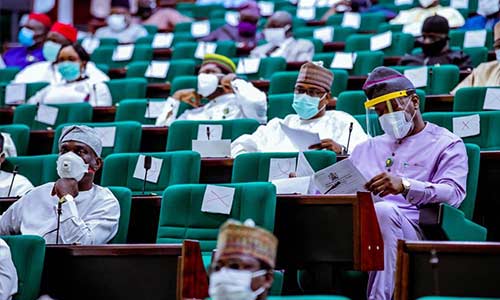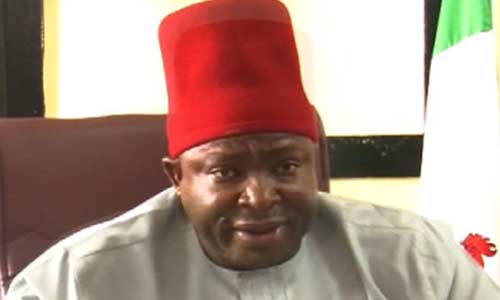Reps Committee Votes On LG Autonomy, Judicial Reform, Pension Administration

In preparation for the transmission of the recommendations on the 1999 Constitution to the State Houses of Assembly, members of the House of Representatives Ad-hoc Committee voted on Local Government autonomy, judicial reform and electoral matters.
The lawmakers during the resumed session also resolved to step down the proposal on conferment of immunity on the Senate President and Speaker of the House of Representatives.
In his address, the Deputy Speaker, Hon. Idris Wase said: “Today’s meeting is the continuation of what we started earlier on. If you recall sometimes back before we went on break, we had similar meetings where we were able to discuss and vote clause by clause on these areas: electoral matters, local government autonomy and judicial reform.
“And we stopped at that, hoping that by the time we resume and today, by the grace of God, it is what we are about to continue on the remaining areas for the clause by clause.
“Please, I want to beg for your understanding to give us the maximum cooperation so that we will be able to deliver what is expected of us to Nigerians as we did promise at the commencement of this House.
“I want to believe that if we work very hard, our timetable is that we are going to do our voting at the end or towards the end of February this year and hopefully, the transmission would be done at the end of the month to the President.
“We have a very choked programme and I will beg that, on each of the days slated for the meeting, even if it is five of us that are present, we will start the work so that we will be able to report progress as required of us to plenary.
“So, the onus is on us now as representatives of our various communities and the country, which is the larger constituency, to be patriotic enough to attend to this very clarion call to come and serve our fatherland.
“Together, I believe we can make the history of delivering a very apt and excellent document to the Nigerian people. I want to beg for your understanding. May God help us.
“Maybe as we progress, we will make a decision: my new thinking is that we will have to do the work with all determination and leaving the work to commence at the end of each day’s plenary is not the best.
“I am thinking that we could start our work early enough, maybe from 11:30 am of each of the remaining days, so that we will be able to do justice and do the clause by clause, and give it the maximum attention it deserves. This is what I am praying; I pray that you will accept before we close so that from tomorrow we will not wait for the plenary to close before we come for the consideration.
“It is quite energy-consuming and we may not be able to deliver as expected of us. That is why I am begging for that change of structure in terms of our timetable.
“As I did mention, we have done electoral matters, we have dealt with local government autonomy and judicial reform. Also on record, I believe that there are other referrals that have been sent to us before we went on break, after these considerations.
“It means then that we will have to tidy up those other areas that are similar, of the referral that have been made to us, so that we will be able to tidy up all the areas, not leaving anything undone, which will jeopardise the delivery of good governance to Nigerians.
“You have to work a lot on those areas, our consultants, the remaining bills that have been referred to us, that are related to electoral matters and local government autonomy, judicial reform inclusive. I could remember for judicial autonomy, there is this issue of pension administration, the appointment of judges and enhancement of their numbers; all these are constitutional amendments. You now should bring supplementary for consideration of those other areas so that we will be able to put them up for a vote at the same time with these other ones. These are very important areas that I believe if we are able to inject into our system, governance would be enhanced and Nigerians will benefit,” he noted.
During the consideration of the bill which seeks to alter section 308 of the Constitution with a view to confer immunity on the two principal officers, Hon. Uzoma Nkem-Abonta kicked against the intendment of the bill.
He argued that immunity should only cover issues regarding duties and functions of those public officers, not criminal acts like rape or murder.
While acknowledging that there are examples of abuse of process by the Executive against the Legislature and Judiciary, Hon. Nkem-Abonta however, argued that blank immunity is not acceptable.
“I want a slight modification as it affects duties of the office. Should a governor come out and shoot somebody, is he covered by immunity? Should an officer go out there and be involved in rape, should he be covered?
“I should think, in fairness to the public, immunity for things pertaining to his office, like giving a verdict in his court. As it regards the performance of duties, they should have 100 per cent immunity, but for crimes outside, there should be no immunity; it should not be a blanket.”



